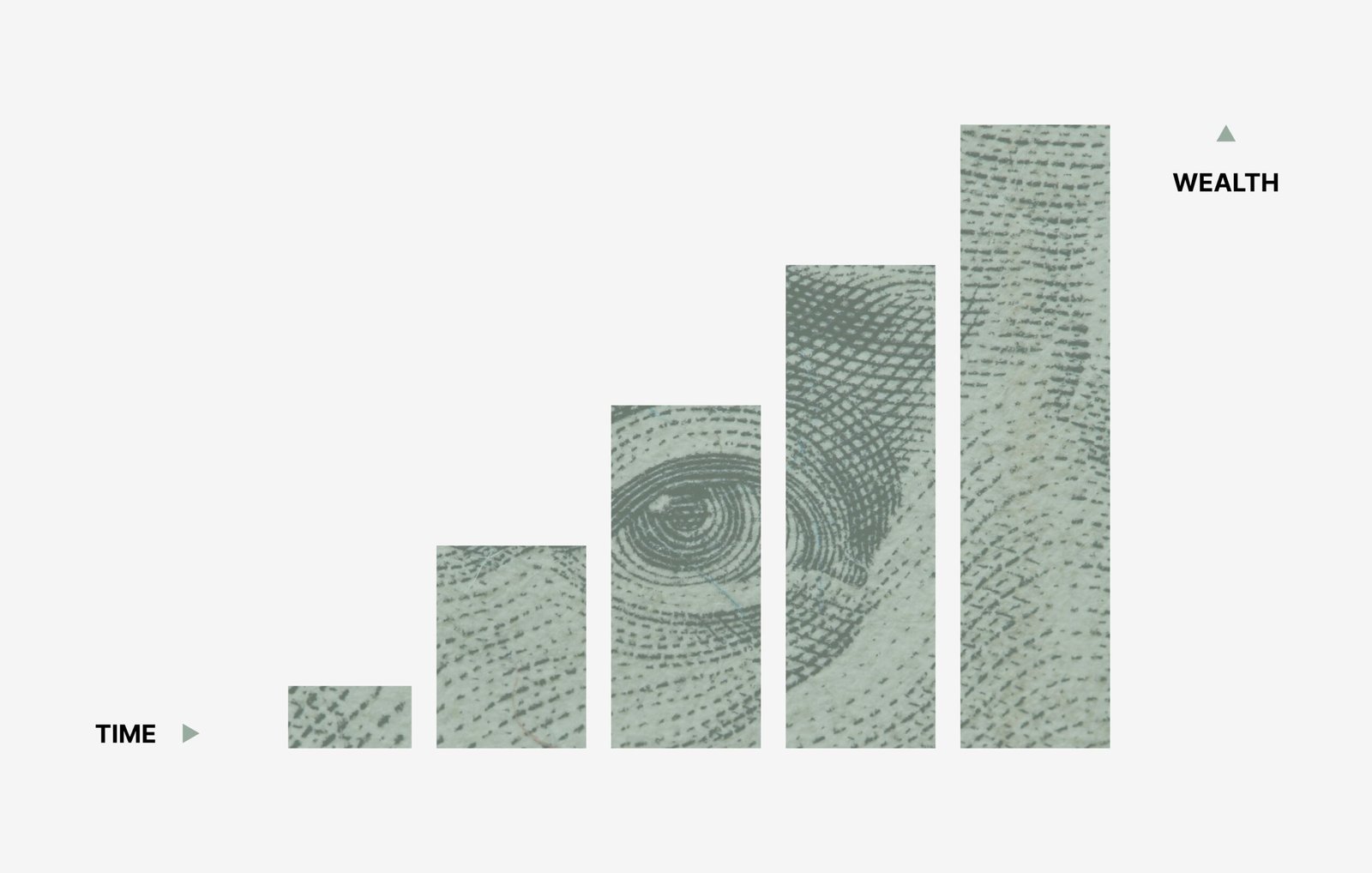
Introduction to the Importance of Expression
Expression, in its myriad forms, is a fundamental human right that allows individuals to convey their thoughts, emotions, and ideas. It plays a crucial role in shaping personal identity, cultural narratives, and societal dynamics. The ability to express oneself is not merely a personal privilege; it is an essential component of a free and democratic society. When individuals articulate their beliefs, values, and experiences, they contribute to a diverse tapestry that enriches the collective understanding of humanity.
At an individual level, expression fosters a sense of self. Through creative outlets such as writing, art, or public speaking, people can explore and articulate their inner worlds. This process of communication enables individuals to understand themselves better, develop their identities, and connect with others who share similar experiences. Additionally, expression promotes emotional well-being by providing a channel through which individuals can process feelings and navigate complex life situations. Thus, the act of expressing oneself becomes a vital aspect of personal growth and healing.
From a societal perspective, expression is instrumental in shaping culture. It allows for the exchange of ideas and dialogue that can lead to social progress and collective awareness. Cultural expression, whether through literature, music, or performance, reflects the values and struggles of a society at a given time. This shared cultural heritage is pivotal in forming community bonds and fostering understanding among diverse groups. When voices are silenced, the richness of cultural discourse diminishes, leading to a homogenized viewpoint that stifles innovation and critical thought.
Understanding the importance of expression underscores the consequences faced when voices are silenced. The denial of this fundamental right not only impacts individuals but also deprives society of varied perspectives, stunting its progress and cultural development. As we delve deeper into the implications of silencing voices, it becomes clear that the ability to express oneself is interwoven with the broader themes of freedom and democracy.
Historical Context of Silenced Voices
Throughout history, the silencing of voices has taken many forms, influenced by oppressive regimes, social upheaval, and struggles for civil rights. From the authoritarian censorship of dissenting opinions to the fight for social justice, many case studies illustrate the profound impact this phenomenon has had on societies around the world.
One notable example is the censorship experienced under totalitarian regimes. In the Soviet Union, Joseph Stalin’s rule instigated a period marked by widespread repression, where artists, writers, and intellectuals faced dire consequences for expressing dissenting views. The propagation of state-approved narratives not only suppressed individual expression but also reshaped the cultural landscape, reinforcing the importance of free speech as a foundation for societal progress.
Similarly, during the civil rights movements in the United States, voices advocating for racial equality were often marginalized or violently suppressed. Activists such as Martin Luther King Jr. and Malcolm X faced significant threats to their personal safety and public expression. The struggle against systemic racism highlighted the dangers of silencing marginalized communities, ultimately demonstrating how such repression galvanizes collective calls for justice and equality.
The impact of religious persecution is another significant historical factor in the silencing of voices. Individuals and groups have faced tremendous risks for their beliefs, often leading to imprisonment or exile. For instance, the Salem Witch Trials in the late 17th century epitomize how fear-fueled narratives can undermine freedom of expression, resulting in tragic consequences for those accused of witchcraft and dissent.
These historical examples illustrate a consistent pattern: when voices are silenced, societies pay the price. The repressive measures taken against expression serve to stifle innovation, hinder social progress, and perpetuate injustices. Such events emphasize the critical need to uphold the values of free speech and the expression of diverse perspectives, as a harmonious society thrives on the contributions of all its members.
The Psychological Effects of Being Silenced
The act of silencing voices, whether on an individual or community level, can lead to profound psychological effects that extend far beyond the immediate experience of oppression. Individuals who find themselves unable to express their thoughts or feelings often experience a range of emotional disturbances including trauma, anxiety, and depression. The suppression of one’s voice can create a sense of powerlessness and hopelessness, contributing to a diminished sense of self-worth and identity. This phenomenon is documented in various studies that illustrate how psychological distress is exacerbated in environments where open expression is discouraged or prohibited.
Trauma is a significant consequence of being silenced. Individuals may endure repeated feelings of invalidation and dismissal, resulting in emotional scars that can linger for years. The inability to communicate experiences or grievances can lead to internalized feelings of anger or resentment. This has been exemplified by numerous personal stories from marginalized communities where experiences of oppression have led to collective trauma. For instance, individuals who speak out against systemic injustices often report feelings of despair when their voices are disregarded, illustrating the deep-seated emotional impact of such experiences.
Furthermore, the long-term effects on mental health can be substantial. Research indicates that prolonged suppression of expression can manifest in chronic mental health issues, including post-traumatic stress disorder (PTSD) and various anxiety disorders. The stress of living with suppressed feelings can lead to a range of psychosomatic symptoms, affecting overall health and well-being. As many individuals find themselves grappling with these psychological ramifications, it becomes increasingly clear that the silencing of voices has deep-seated implications for mental health across generations. To acknowledge these effects is essential in fostering an environment that embraces dialogue and expression.
The Role of Technology in Amplifying Voices
In today’s digital age, technology plays a pivotal role in shaping the landscape of expression. The rise of social media platforms has transformed how individuals communicate and share their ideas, allowing marginalized voices to resonate in ways that were previously unimaginable. This democratization of expression is significant as it enables people from diverse backgrounds to participate in public discourse, often challenging dominant narratives and raising awareness on pressing social issues.
Social media platforms such as Twitter, Facebook, and Instagram serve as powerful tools for advocacy, enabling users to disseminate information swiftly and widely. Activists and ordinary citizens alike utilize these platforms to share their experiences and engage others, making it possible for critical issues such as social justice, climate change, and human rights to reach a global audience. This phenomenon has empowered previously silenced groups, fostering a sense of community and solidarity among individuals advocating for change.
However, the amplification of voices through technology is not without its challenges. While social media can give rise to positive discourse, it can also lead to misinformation, harassment, and echo chambers where dissenting views are stifled. The rapid spread of information can result in polarizing narratives that may undermine constructive dialogue. Furthermore, the algorithms governing these platforms often prioritize sensational content, which can overshadow more nuanced discussions. As a result, while technology serves as a vital tool for expression, it is imperative to approach it with a critical lens, recognizing its potential to both elevate and suppress important conversations.
In conclusion, the intersection of technology and expression reveals a complex landscape where the ability to amplify voices is accompanied by significant challenges. Navigating this space requires a commitment to fostering an inclusive dialogue that embraces diversity while also addressing the potential pitfalls inherent in digital communication.
Consequences for Society When Voices Are Silenced
The act of silencing voices has profound and far-reaching consequences for society at large. When individuals and groups are unable to express their thoughts, beliefs, and experiences, it leads to a significant loss of diversity in thought. This homogenization restricts the variety of perspectives needed to foster critical dialogue and cultural exchange. According to a report by the World Economic Forum, societies that fail to embrace diverse voices experience diminished creativity and problem-solving capabilities. Such an environment inhibits innovation, as groundbreaking ideas often stem from the synthesis of varied viewpoints.
Moreover, the silencing of voices can result in the formation of echo chambers. In these echo chambers, people only engage with opinions that reinforce their existing beliefs. Research from the Pew Research Center indicates that individuals who predominantly encounter similar viewpoints online are less likely to be exposed to alternative perspectives. This not only exacerbates societal divisions but also perpetuates misinformation, as unchallenged narratives can gain traction devoid of rigorous examination. The lack of critical dialogue can lead to the polarization of communities, making it increasingly difficult for individuals to empathize with one another.
Furthermore, the absence of varied voices in public discourse stifles the potential for social progress. Many movements for change and reform, such as civil rights and gender equality, owe their success to the collective amplification of marginalized voices. Studies show that societies that actively encourage the expression of dissenting views are more likely to experience social stability and resilience. As prominent author and activist bell hooks once stated, “Life-transforming ideas have always come to me through the voices of others.” Therefore, recognizing the necessity of diverse expressions is crucial for the overall health of any society, ensuring that all citizens can contribute to the ongoing narrative of their communities.
Case Studies of Impactful Movements for Expression
Throughout history, numerous movements have emerged globally, advocating for the right to express dissent and raise awareness about social injustices. These movements have played a critical role in challenging the status quo and fostering societal change. Notable cases include the Arab Spring, the Black Lives Matter movement, and the Women’s Rights movements, each showcasing the power of collective voices when united against silence.
The Arab Spring, which began in late 2010, was characterized by a series of anti-government protests across the Arab world. Citizens utilized social media platforms to convey their grievances and mobilize support, effectively breaking the silence imposed by authoritarian regimes. This grassroots uprising exemplified the impact of expression as citizens demanded political reforms, social equity, and human rights. The protests successfully led to significant political transformations in several countries, albeit with varying degrees of success and stability.
Similarly, the Black Lives Matter (BLM) movement emerged in the United States in response to systemic racism and violence against Black individuals. Sparked by high-profile incidents of racial injustice, BLM has resonated globally, highlighting the necessity of expressing discontent and advocating for racial equality. The movement harnessed the power of social media to amplify messages and engage a diverse audience, leading to widespread protests and legislative discussions focused on police reform and systemic change. BLM has reshaped the narrative around race relations and justice, emphasizing the importance of vocal expression in combating oppression.
Another pivotal movement is the Women’s Rights movement, which has fought tirelessly for gender equality and the protection of women’s rights across the globe. From the suffragette movement to contemporary initiatives championing reproductive rights and combating gender-based violence, the struggle for women’s voices to be heard continues to be vital. These efforts have brought about significant legislative changes and increased awareness regarding women’s issues, illustrating how advocacy can dismantle societal barriers and facilitate progress through expression.
Art and Expression: A Voice for the Voiceless
Art has long served as a powerful medium for expression, particularly for those whose voices have been marginalized or silenced. Through various forms of artistic expression, including literature, music, and visual art, individuals can convey their thoughts, emotions, and experiences that might otherwise go unheard. This creative outlet often shines a light on issues of oppression and silencing, allowing artists to articulate the struggles of the voiceless and foster an environment of understanding and empathy.
Literature, for instance, has been an influential vehicle for narrating the lives of disenfranchised individuals. Through storytelling, authors can bring attention to societal injustices and share personal accounts that resonate with a wider audience. Works that engage with themes of silencing often provoke thought and discussion, encouraging readers to reflect on their positions and the structures of power that contribute to such injustices. Classic novels, contemporary poetry, and essays serve as a testament to the ability of written word to spark change and inspire action.
Similarly, music has acted as a communal rallying point for those affected by oppression. Songs, lyrics, and genres born from struggles provide not only solace but also an anthem for collective resistance. Whether through protest songs, folk traditions, or global rhythms that echo dissent, music resonates deeply within the human spirit, reinforcing the sentiment of shared experience. The universality of music transcends cultural barriers and serves as a catalyst for dialogue about pressing issues awaiting resolution.
Visual art, too, has the power to encapsulate the raw emotions associated with silenced voices. Artists utilize mediums such as painting, sculpture, and installations to communicate vital messages, often presenting stark imagery that critiques social norms and policies. Through exhibitions and public displays, visual art can provoke conversations that prompt viewers to reconsider their perspectives, rally support for marginalized communities, and ultimately pave the way for social change.
Keys to Empowering Voices: Advocacy and Education
Empowering silenced voices is an essential undertaking that involves a multifaceted approach including advocacy, education, and community engagement. These strategies play a critical role in promoting freedom of expression while supporting marginalized communities. One of the most effective means of advocacy is raising awareness through campaigns that highlight the issues faced by individuals with silenced voices. Such campaigns can mobilize public opinion and influence policymakers to enact reforms aimed at protecting freedom of speech.
Education serves as a powerful tool for empowerment, fostering understanding and critical thinking. By incorporating curricula that address topics like social justice, equity, and the right to express oneself, educational institutions can prepare future generations to appreciate the value of diverse voices. Workshops and seminars can be conducted to facilitate discussions surrounding the significance of expression, encouraging active participation among participants. Furthermore, creating educational materials in various formats—podcasts, videos, and articles—can make the information accessible to wider audiences.
Community engagement also plays a vital role in amplifying silenced voices. Grassroots movements can serve as platforms for individuals to share their stories, thus fostering a sense of belonging and solidarity. By forming partnerships with local organizations and community leaders, individuals can work collectively toward establishing safe spaces where open dialogue is encouraged. Supporting local art, literature, and music can further enrich these spaces, serving as a medium through which voices can be heard and celebrated.
Ultimately, promoting freedom of expression requires concerted efforts from individuals, organizations, and governments alike. By employing strategies that emphasize advocacy, education, and community engagement, we can strive to ensure that every voice has the opportunity to be heard and valued. Addressing these issues head-on is crucial for nurturing an inclusive society where diverse perspectives flourish.
Conclusion: The Path Forward for Expression
The topic of silenced voices and the power of expression is both profound and complex. Throughout our discussion, we explored various dimensions of how expression can be suppressed and the detrimental effects such suppression has on individuals and society as a whole. From cultural contexts to political landscapes, the importance of safeguarding the right to express oneself cannot be overstated. We examined instances where voices have been marginalized and the repercussions that followed. Such events serve as a warning of the fragility of freedom of expression. The ability to share ideas, opinions, and emotions is fundamental to our humanity and serves as a cornerstone of democratic societies.
Moreover, we acknowledged that the journey toward a more inclusive environment requires collective efforts. It is vital for communities, institutions, and individuals to actively participate in fostering an atmosphere where diverse perspectives can flourish. Educating ourselves and others about the significance of expression helps to build empathy and understanding. This, in turn, enables us to challenge oppressive structures that silence marginalized voices. By championing freedom of speech and promoting platforms for dialogue, we can create spaces that enrich our collective experience and ensure that every voice is valued.
As we reflect on these themes, it becomes clear that the power of expression is not just a privilege; it is a responsibility we all share. Encouraging open conversations and supporting those whose voices are at risk is crucial in creating a balanced society. Ultimately, the path forward is one of active engagement and mutual respect, whereby we strive to amplify diverse expressions and affirm the inherent worth of every individual’s voice. Let us move forward with intention, embracing the myriad ways in which expression shapes our world.


